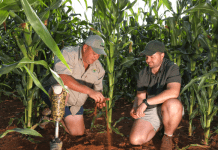Transnet’s total disregard for agriculture might soon lead to large financial losses. The company last year managed a profit of R4,3 billion.
Group revenue for the previous financial year amounted to R30 billion, but the profit is predicted to fall by 15% to R4,5 billion this year due to the downturn in global demand for raw materials. The company would have to take drastic steps, including staff retrenchments, if it doesn’t manage a turnaround within the next month and a half.
A reliable source representing important roleplayers in the railroad industry believes Transnet could have significantly buffered the blow if it had paid more attention to agriculture. “Transnet seems to totally disregard the importance of agriculture, as most agricultural products are run on branch lines,” he said.
“The company seems to forget most of these lines feed into main lines and in effect, help to build traffic on these lines. In addition, agriculture is a sustainable product, which would help to secure the long-term sustainability of the company, whereas minerals are finite.”
The source said Transnet doesn’t seem to care about the current situation. “The company thinks it can solve all its problems by simply raising transport prices. It isn’t doing any introspection or trying to find ways to cut costs and enhance productivity.
Many industries, as a result, are looking for alternative methods of transport. The forestry industry is a case in point.”
According to the source, Transnet recently introduced price hikes of up to 400% rendering rail transport almost four times more expensive than road transport. The trend doesn’t seem to follow inflation rates. “And once an industry has reverted to road, it’s very hard to revert back to rail due to infrastructure challenges,” explained the source.
He added stolen rail infrastructure and a lack of maintenance is causing huge losses. “Transnet could have out-sourced lines, but it simply doesn’t seem to want anyone else on the lines.” – Glenneis Erasmus








